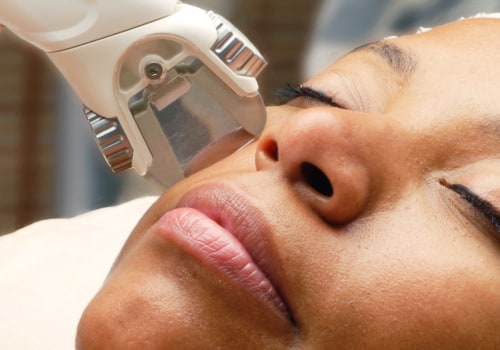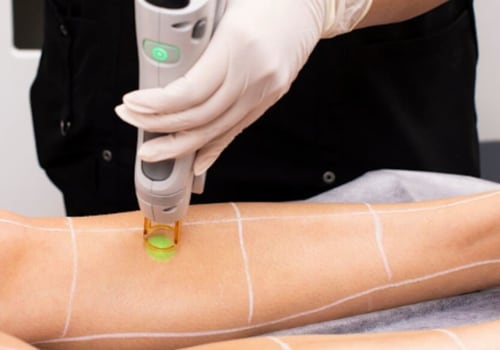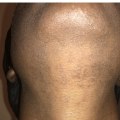Are you looking for a way to reduce your chances of scarring? Laser hair removal may be the answer. This treatment is becoming increasingly popular as it offers a safe and effective way to remove unwanted body hair. Laser hair removal is a procedure that uses laser energy to target and remove unwanted hair. It works by targeting the follicles of the hair, heating them up, and destroying them so that they can no longer produce hair. The laser works by targeting the pigment in the follicles, so it is more effective on darker hair than on lighter hair. The benefits of laser hair removal include decreased chances of scarring and the ability to target specific areas of the body.
It is also a relatively quick procedure with minimal downtime. This makes it a great option for those looking for an effective way to remove unwanted body hair without the risks associated with other treatments. In this article, we'll explore the medical benefits of laser hair removal and why it's becoming such a popular choice for those seeking to reduce their chances of scarring.
The medical benefits of laser hair removal
are often overlooked. It is a safe and effective way to remove unwanted body and facial hair, but it can also help to reduce the chances of scarring. Laser hair removal works by targeting the pigment in the hair follicle, which means that the surrounding tissue is not damaged.This helps to reduce the risk of post-treatment scarring, which is a common side effect with other forms of hair removal. In addition, laser hair removal also reduces inflammation in the area, which can also help to reduce the chances of scarring. The heat generated by the laser helps to reduce inflammation in the area, which can help to reduce redness, swelling, and irritation. The effectiveness of laser hair removal also depends on the type of skin and hair being treated. For example, those with darker skin tones are at higher risk for post-treatment scarring due to increased melanin in the skin.
However, newer lasers are designed to target only the pigment in the hair follicle, which can help to reduce this risk. Finally, it's important to note that laser hair removal is not a one-time treatment. For best results, multiple treatments are needed over a period of time. This helps to ensure that all of the hair follicles are targeted, which can further reduce the chances of scarring. With each session, the laser targets more hairs, reducing the chances of post-treatment scarring. The medical benefits of laser hair removal are clear: it is a safe and effective way to reduce unwanted body and facial hair while also reducing the chances of scarring.
It is important to find a qualified technician who is experienced in this procedure, as this will ensure that you receive the best results possible.
What Are The Risks?
While laser hair removal is generally safe, there are some potential risks associated with treatment. These include temporary side effects such as redness, swelling, and irritation. In rare cases, more serious side effects such as blistering or discoloration may occur. It is important to speak with a qualified doctor or dermatologist prior to undergoing treatment in order to minimize the potential risks and ensure that the procedure is done safely. In addition, laser hair removal can cause scarring if not done correctly.The chances of scarring can be reduced by using a low-power laser and avoiding over-treating certain areas. The skin should also be treated with care and kept clean during the healing process. Following post-treatment instructions provided by the doctor or dermatologist can also help minimize the chances of scarring.
Who Can Benefit From Laser Hair Removal?
Laser hair removal is a popular and effective way to reduce unwanted body and facial hair. But did you know that it can also help to reduce the chances of scarring? In this article, we'll explore who can benefit from laser hair removal and what it means for those looking to reduce their chances of scarring.Laser hair removal can be used on most skin types and hair colors. It is important to note that those with darker skin tones may need additional treatments to achieve desired results. Additionally, individuals with a history of scarring or who are prone to scarring should speak with a qualified doctor or dermatologist prior to undergoing any laser hair removal treatments. The laser technology used in laser hair removal works by targeting and destroying the hair follicles beneath the surface of the skin, while leaving the surrounding skin unharmed.
This makes it an ideal option for those looking to reduce their chances of scarring, as there is no need to make any incisions or remove any tissue from the body. In addition to reduced chances of scarring, laser hair removal also offers many other benefits. It is a fast, non-invasive procedure that can be completed in a matter of minutes and requires little to no downtime. It is also considered a very safe procedure, with minimal risk of side effects or complications.
Lastly, laser hair removal can provide long-lasting results, with most people seeing a significant reduction in unwanted body and facial hair after just a few treatments. Overall, laser hair removal is an effective and safe way to reduce unwanted body and facial hair while also reducing the chances of scarring. Those who are interested in this procedure should consult with a qualified doctor or dermatologist to determine if they are suitable candidates. In conclusion, laser hair removal is a safe and effective way to reduce unwanted body and facial hair. It can also help to reduce the chances of scarring by targeting the pigment in the hair follicle and reducing inflammation. Those who are prone to scarring should consult with a qualified doctor or dermatologist prior to undergoing treatment.







